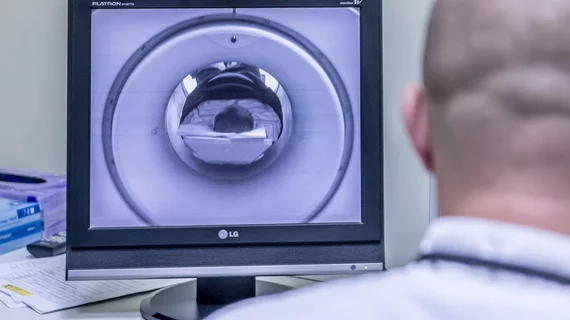Experts unveil NS-RADS, a new MRI-powered system for classifying neuropathy
MR images of peripheral nerve pathologies have helped experts develop a new reporting and data system for classifying neuropathy.
The Neuropathy Score Reporting and Data System (NS-RADS) was validated by radiologists from varying experience levels with good interrater agreement, and experts involved in the study suggest that their new neuropathy grading system could help guide patients and providers in managing treatment plans.
“The proposed NS-RADS classification is accurate and reliable across different reader experience levels and a spectrum of peripheral neuropathy conditions,” lead researcher Avneesh Chhabra, MD, with the department of radiology at UT Southwestern Medical Center in Dallas, TX, and co-authors wrote. “NS-RADS can be used as a standardized guideline for reporting peripheral neuropathies and improved multidisciplinary communications.”
The results from the study were published recently in the American Journal of Roentgenology, where experts detailed the development of their system. The research included a retrospective analysis of 100 patients with nerve imaging studies and confirmed diagnoses of peripheral neuropathy. Using agreed-upon qualitative criteria, the researchers developed classes to account for a multitude of latent pathologies, including unremarkable, injury, neoplasia, entrapment, diffuse neuropathy and postintervention state. Additionally, subclasses for detailing the severity and extent of the patients’ lesions were also created.
Using MRI scans of the patients’ peripheral nerves, 11 radiologists with experience levels ranging from 3 to 18 years were able to validate NS-RADS with excellent interreader agreement for pathology characterization, observing a mischaracterization rate of only 1.8%. For deciphering mild compared to more severe categories, the readers achieved an accuracy between 88% and 96% for nerve lesions and 86% to 94% for abnormalities of muscles.
“On the basis of the overall promising interrater agreement shown in this study, we believe that the newly proposed NS-RADS classification will perform as well in routine practice as it did in this initial validation study,” the experts wrote. “The use of the system will facilitate longitudinal and multiinstitutional collection of data for future research, management decisions, tracking of patient outcomes, and refinement of the system as more information becomes available.”
More MRI content:
'Pandemic brain': PET/MRI images reveal how COVID's impact is felt by non-infected individuals
MRI features uncover differences between the brains of autistic girls and boys
Breast MRI screening cuts cancer mortality rates in half for women with lesser-known gene mutations

